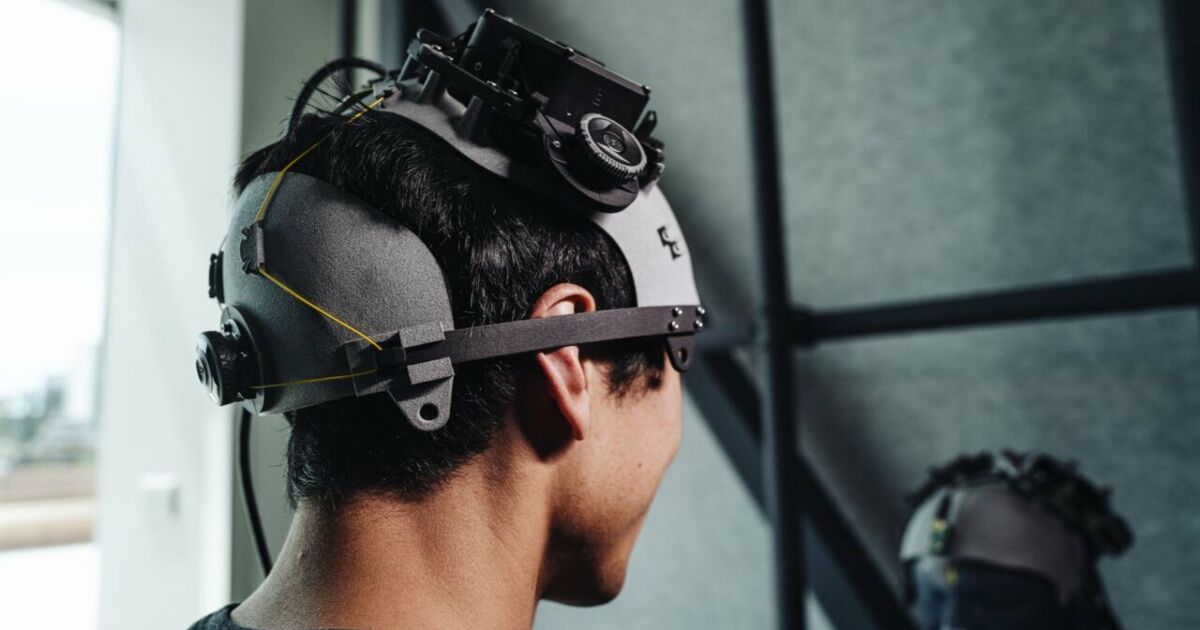We’re not far from a scene from X-Men. A research partnership between Facebook and Chang Lab at the University of California, San Francisco, allowed a person to compose a sentence while thinking on a computer, according to a Thursday (July 15) post in New England Journal of Medicine.
According to the American media the edgeThis prototype helmet, called Steno, aims to find solutions for people with disabilities by translating their brain activity. The first laboratory involved is a man who suffered from anaarthrosis (loss of the ability to speak) for 16 years after a stroke. The lab implanted a high-density multipolar array into the region of the cortex that controls speech. The individual then spent 22 hours, spread over over a year of sessions, training the computer system to recognize specific neural patterns.
Read also – The US Army signs a $22 billion contract with Microsoft to purchase augmented reality headsets
15 words written per minute
Over several sessions, try to pronounce isolated words from a vocabulary of 50 terms. The second step then was to produce complete sentences using the words learned, which included basic verbs and pronouns – such as “I” – as well as specific useful nouns – such as “glasses” and “computer” – and commands. Like “yes” and “no”.
This training eventually made it possible to create a language model that is able to respond when a person thinks of certain words, even if they are unable to pronounce them. The researchers improved the system by incorporating similar probabilistic functions into a smartphone’s predictive keyboard. They reported that in final tests, the headset could decode an average rate of 15.2 wpm, count errors, or 12.5 wpm, while only counting correctly decoded words.
Read also – Apple Glass augmented reality glasses can turn any surface into a touch screen
bracelet instead of helmet
Along with this post, Facebook made it clear In a press release The company was abandoning the idea of a commercial head-mounted brain-reading device. The group notes that it plans instead to disclose all studies and research in open source, i.e. publicly available.
However, Facebook specifies that it is continuing to develop its smart bracelet that must be linked to AI glasses. To direct a virtual object with glasses, it is enough to make a slight movement of the finger of the hand holding the device.
American researchers (second scene) and Russian (Sensortech) are also into neural networks, each of which has developed an implant that allows blind people to distinguish shapes and lines. This “electronic” band sends flashes of light to the brain to distinguish objects around it. Despite the frightening nature of these technologies, the results of this research will be, first and foremost, revolutionizing people with disabilities.
Read also – Amazon opens hair salon in London that uses augmented reality الواقع
Receive our latest news
Every day, Business Insider news essentials

“Certified gamer. Problem solver. Internet enthusiast. Twitter scholar. Infuriatingly humble alcohol geek. Tv guru.”





